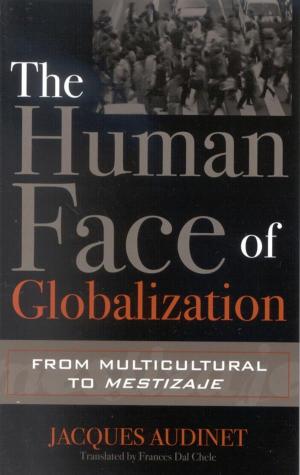Authoritarian Regimes in Latin America
Dictators, Despots, and Tyrants
Nonfiction, History, Americas, Latin America| Author: | Paul H. Lewis | ISBN: | 9780742571020 |
| Publisher: | Rowman & Littlefield Publishers | Publication: | September 29, 2005 |
| Imprint: | Rowman & Littlefield Publishers | Language: | English |
| Author: | Paul H. Lewis |
| ISBN: | 9780742571020 |
| Publisher: | Rowman & Littlefield Publishers |
| Publication: | September 29, 2005 |
| Imprint: | Rowman & Littlefield Publishers |
| Language: | English |
Strong, colorful personalities who impose their will upon laws, constitutions, courts, and congresses are an enduring feature of Latin American politics, beginning with the violent regional bosses (caudillos) of the early nineteenth century and continuing with the 'hyper-presidential' systems of today. Paul Lewis explores the origins of the region's authoritarian culture and the different types of regimes that have exhibited it. Taking a student-friendly chronological approach, this thoughtful and accessible text begins with a brief overview of Latin America's Iberian heritage, then describes the general breakdown of order and the rise of the caudillos following independence. Lewis shows how the internal dynamics of caudillo politics have produced, in one country after another, either strong personalistic dictatorships or oligarchies that ruthlessly imposed order on their societies. Order made economic growth and urbanization possible, yet created great social injustices that spurred the development of mass politics. The author describes the twentieth-century upheavals that brought the people into the political arena, resulting in a variety of revolutionary and counter-revolutionary regimes that borrow their inspiration from fascism and communism. Balanced yet cautious about the future of democracy in the region, this accessible book will be invaluable for courses on contemporary Latin America.
Strong, colorful personalities who impose their will upon laws, constitutions, courts, and congresses are an enduring feature of Latin American politics, beginning with the violent regional bosses (caudillos) of the early nineteenth century and continuing with the 'hyper-presidential' systems of today. Paul Lewis explores the origins of the region's authoritarian culture and the different types of regimes that have exhibited it. Taking a student-friendly chronological approach, this thoughtful and accessible text begins with a brief overview of Latin America's Iberian heritage, then describes the general breakdown of order and the rise of the caudillos following independence. Lewis shows how the internal dynamics of caudillo politics have produced, in one country after another, either strong personalistic dictatorships or oligarchies that ruthlessly imposed order on their societies. Order made economic growth and urbanization possible, yet created great social injustices that spurred the development of mass politics. The author describes the twentieth-century upheavals that brought the people into the political arena, resulting in a variety of revolutionary and counter-revolutionary regimes that borrow their inspiration from fascism and communism. Balanced yet cautious about the future of democracy in the region, this accessible book will be invaluable for courses on contemporary Latin America.















